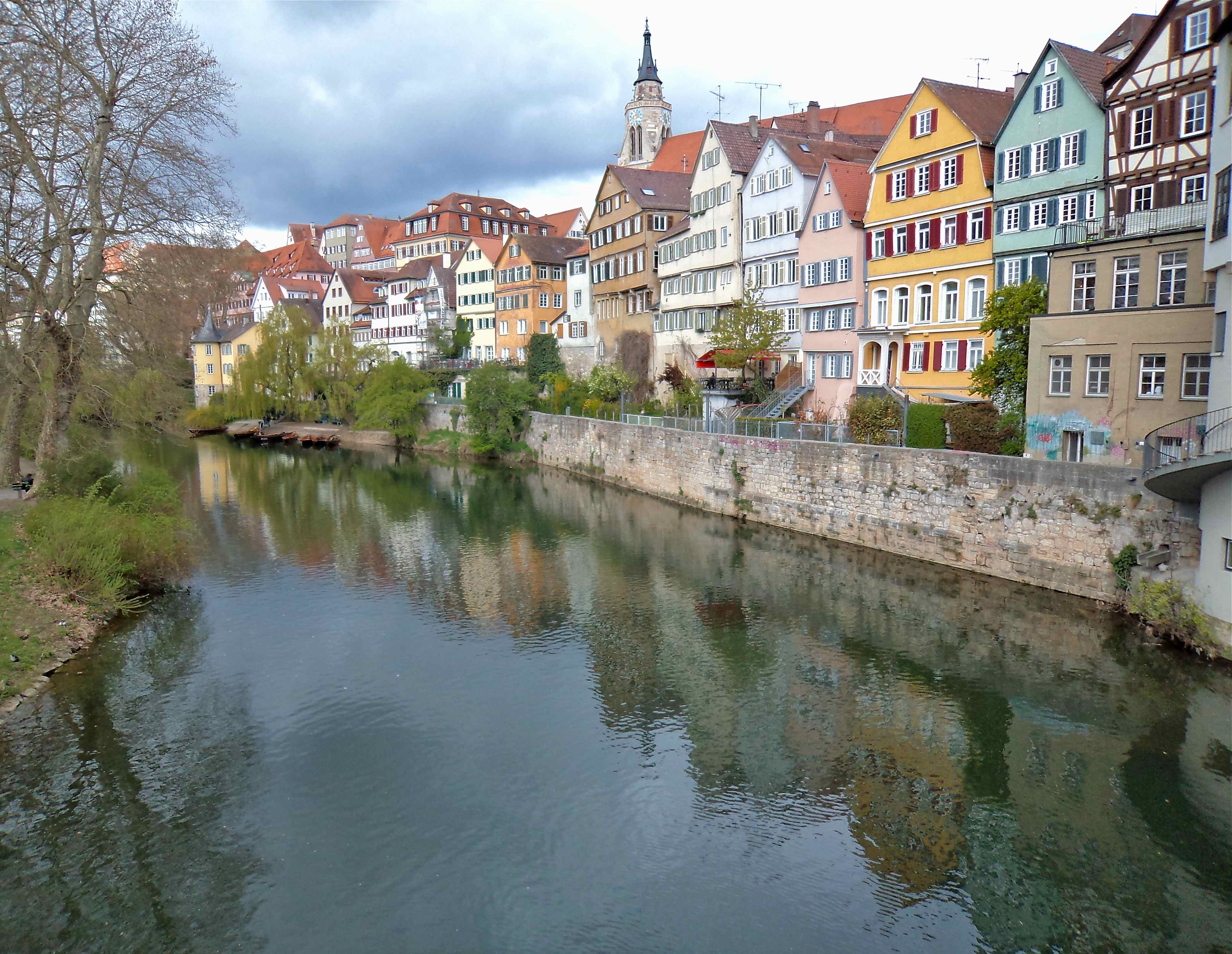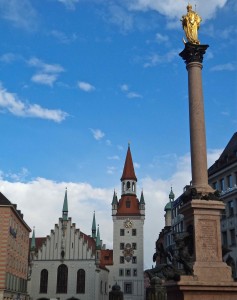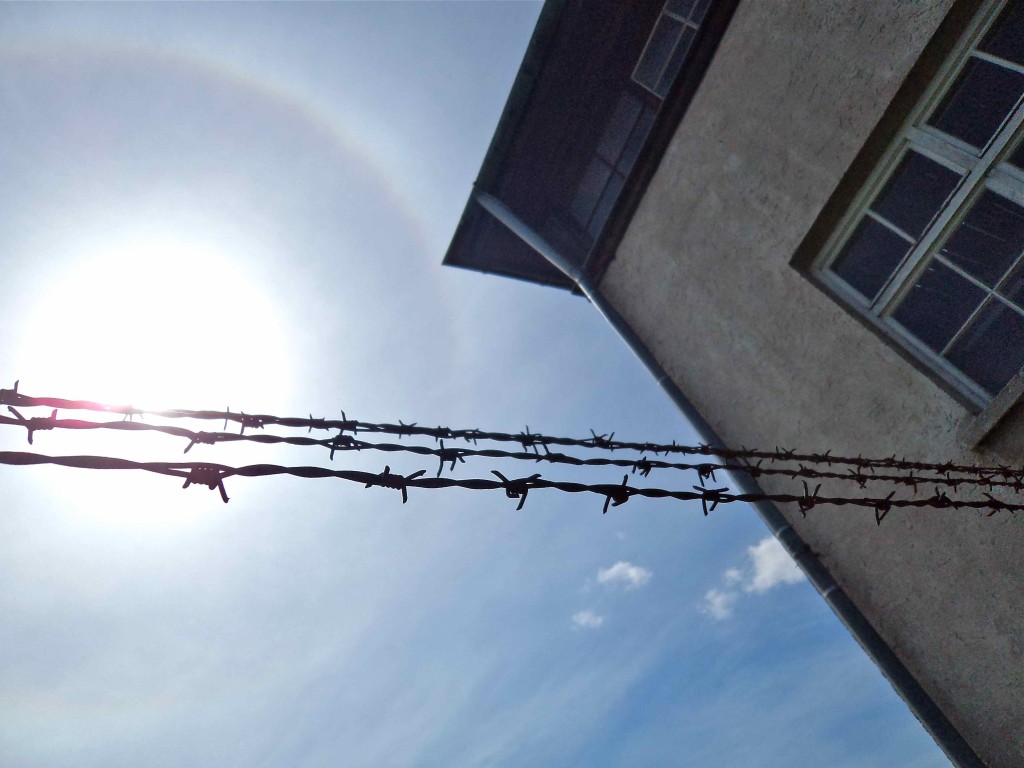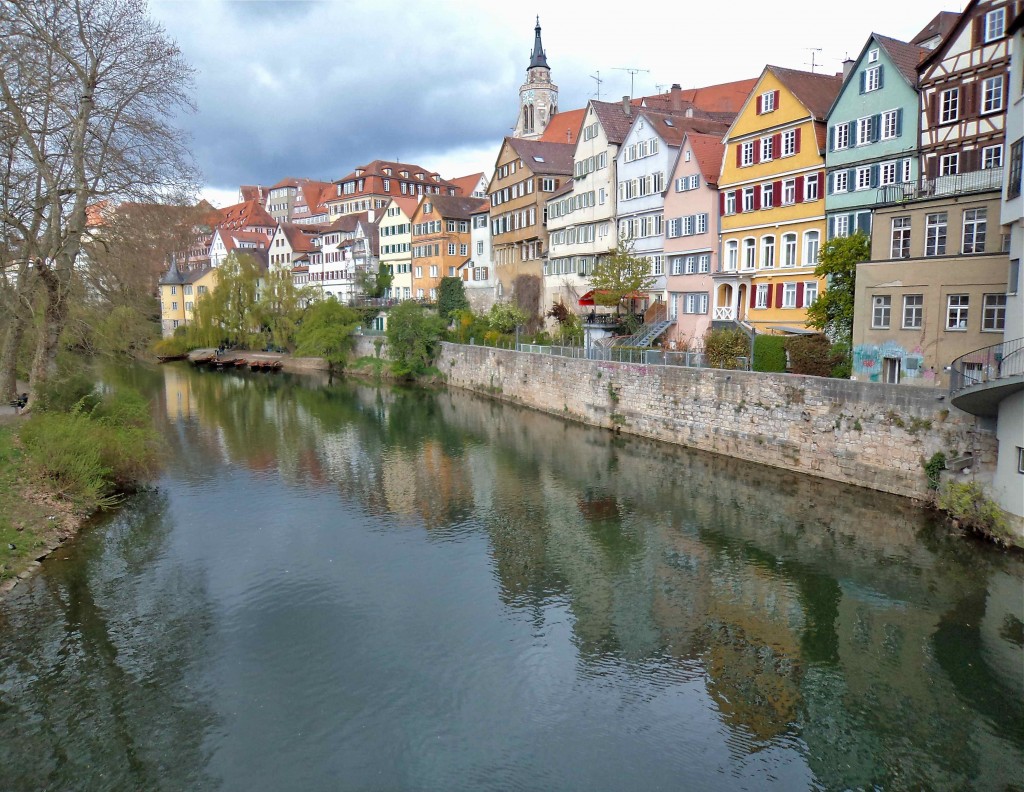Within minutes of arriving in Germany it is incredibly easy to tell that the German people are remarkably efficient and self-sufficient. Although many Germans do speak English, they have little need of doing so. Even waiters in popular restaurants don’t willingly speak much English. The language barrier in Germany was the most pronounced of any country I’ve been to. While one can certainly get housing, food, and transportation, there is an entirely different sense of interaction between those who speak German and those who don’t. Lucky, most of my time was spent with other students from Valparaiso University who are studying abroad in Germany and can speak the language fluently.
The next thing worth noting is the food. It seems an average lunch consists of a sausage (normally with mustard), some sort of roll or pretzel, and a drink. The majority of main meal courses are similar. Meat with some sort of flavoring like gravy or horseradish and a vegetable (often sauerkraut or potato) go with bread to create a hearty meal. Also, beer is so important it is almost considered food. In Germany I was introduced to many drinks I hadn’t had before. Beer is relatively often mixed with cola or lemonade. A popular drink is bubble tea, which is iced tea with tapioca. Nearly everything in Germany is carbonated, including juice and water. While I didn’t like the water, carbonated apple juice was surprisingly good.
During the day in Munich I took a train to the village of Dachau – the name of the village being synonymous with the concentration camp I then visited on the city’s edge. It is difficult to describe, but something about the place actually feels different. This sixth sense is rather difficult to explain, but if you’ve ever been there perhaps you know what I mean. And if you haven’t been, you should try to go at some point.
After a train ride south through the iconic German countryside of towns hidden among thickly forested valleys we arrived in Tübingen. While much of our time here was spent catching up with friends from Valpo, we still did several of the touristy things the area has to offer. We climbed up to the city’s castle, visited the nearby city of Reutlingen, visited a monastery/king’s hunting lodge, and took the iconic Tübingen photo from the bridge across the Neckar River. Then, all too soon our Easter Break was over and it was time to fly back to London.
There are a few observations worth noting from my travels (and remember these are generalizations). Europeans (especially the British) love their dogs. It is fine to make a joke about someone’s children behaving badly, but don’t dare critique their dog. And not small dogs either – I’ve seen more huskies and german shepherds here than in America. Smoking is far more common in Europe. Several places have relatively strict anti-smoking laws, but many other European countries are far more lax. On Italian trains it seems half the railcar piles out at every stop for a cigarette. Last, Europe is far less restricted than the US (perhaps due to a lack of lawsuits at every turn). For example, I visited the Cliffs of Moher in Ireland. Eventually the guardrails stopped and there were signs warning visitors against continuing. In America, if you did walk through the crack in the fence you’d almost be considered suicidal. Not to mention that a group of park rangers would immediately attempt to get you back behind the railing. Here, absolutely everyone continued – and walked right along the sheer drop into the Atlantic. All the sign meant was that beyond that point the park was no longer responsible for your actions. This was an expected part of the experience, if you stayed behind the wall your trip would have been far less memorable because the railings only enclose a very small section of the cliffs.
Also, see more photos on Picasa or follow me on Twitter!




Leave a Reply